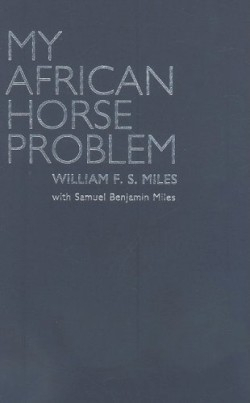
My African Horse Problem
“From afar, from America, most people dismiss my legal problem in Hausaland as quaint or comical merely because it’s over a horse,” Miles writes. “But what if the illicitly transferred item were not a horse but a stock certificate?”
William Miles first came to the region of Hausaland in western Africa as a young Peace Corps volunteer. He returned several times in the ‘80s as a Fulbright scholar to conduct research in the villages of Yekuwa and Yardaje. Fluent in the language of Hausa from his time in the Peace Corps, the author fit in well and was recognized and respected in both villages. Miles owned several horses during the years he spent on his research in Hausaland. It was the easi-est means of transport between the two villages. Because of the difficulties of dealing with horse traders, when Miles left Africa in 1986, he entrusted his horse, Sa’a, to the chief of Yekuwa until his next return.
In 2000, Miles received a letter informing him that the chief had passed away and there was an inheritance dispute involving the horse. Soon he found himself back in Hausaland with his son Sam, who was eager to ride the African horse. But a number of factors promised to complicate the already compli-cated mission: Miles and Sam will first have to spend several days in neighboring Yardaje so as not to offend his old friends there; Miles’ skills with the Hausa language have grown rusty; after fourteen years it is difficult to recognize his old friends; the formalities and superstition of Hausa culture will make it difficult to begin the transaction and resolve it in only four days; and he must bring home his ten-year-old son from a region where tropical dis-eases and “gastric threats” run rampant.
Miles tells his story with humor, offering detailed descriptions of life and customs in these African villages. He includes frequent interjections drawn from Sam’s journal, in which Sam complains often about the village children who have never seen a white boy before. They follow him every-where, touching his skin and pulling his arms: “I feel like an animal in a petting zoo,” he writes.
The author digresses frequently from the main story to tell endearing anecdotes from his time as Mallam Beel/Mista Bello, as he was called in the two villages. His introductions to characters like Faralu the horse groom, Jagga the town crier, and Alhaji Mallam Harouna the scholar are lovingly given, and the descriptions of Mallam Beel/Mista Bello’s reception in his sometime hometowns will almost make readers want to journey to remote Af-rica—Sam’s descriptions of the flies and the odors may scare them off again.
Disclosure: This article is not an endorsement, but a review. The publisher of this book provided free copies of the book to have their book reviewed by a professional reviewer. No fee was paid by the publisher for this review. Foreword Reviews only recommends books that we love. Foreword Magazine, Inc. is disclosing this in accordance with the Federal Trade Commission’s 16 CFR, Part 255.
